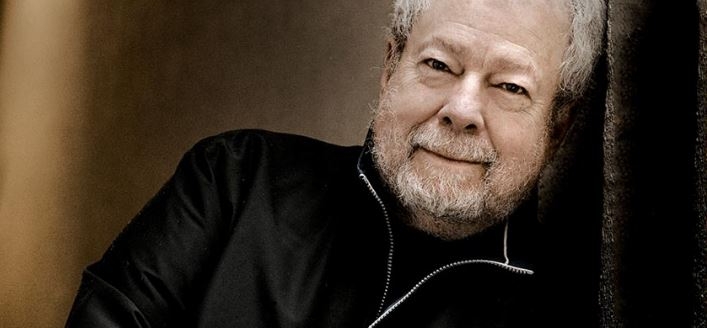There are plenty of musicians today who embrace showmanship and spectacle to make an impression. But in a society that barrages us with hollow messages and countless distractions, honest and refined music can offer due respite. Nelson Freire, a venerable Brazilian pianist, offered refreshing poise and poetry during his Saturday night 2018 Irving S. Gilmore International Keyboard Festival performance. The 73-year-old performer possessed titanic technicality, and set an atmosphere in the Chenery Auditorium that was pleasing in its authenticity and opalescence.
Freire opened his recital with Wolfgang Amadeus Mozart’s familiar “Sonata in A Major, K.331,” a work that appeared on his first public recital as a youngster. His interpretation was tidy but mellifluous as he articulated the exceedingly elaborate variations in the first movement and defined contrasting elements in the second. His unique approach to the famous “Rondo alla Turca” favored stylish resonance over percussiveness.
Freire moved on from this elegant work to Robert Schumann’s “Fantasie in C major, Op. 17.” Many piano aficionados count this Romantic period work among their favorites for its emotional depth. Freire elevated the majestic textures and sonorites over the three sprawling movements to profound effect. A newcomer watching his deft handling of the second movement’s gargantuan leaps between chords would have been surprised to find that the section is among the most dreaded in piano repertoire. Freire traversed the wistful moods of the third with meditative grace, and the audience applauded only after peaceful final chords had completely melted away.
The second half of the program began with “Four Piano Pieces, Op. 119” by Johannes Brahms, which was both crisp and heartfelt. The finale of the “Rhapsody” was particularly memorable with its luminous grandeur. Freire then performed two well-suited works by Claude Debussy, “La plus que lente” waltz and “Golliwog’s Cakewalk.” He produced soft coloring in the waltz, and “Cakewalk” was appropriately flippant with Freire’s personal approach to the jaunty rhythms.
Freire closed the recital with selections from “Iberia,” a work by Spanish composer Isaac Albeniz. According to the concert notes, “Few tonal portraits of any nation penetrate so deeply into its heart or reproduce so accurately the pulse and heartbeat of the nation and its people as does ‘Iberia.’” Freire’s playing “Evocacion” created rich clusters of sound that were at turns clangorous and nostalgic, and passionate meshing of rhythm and melody “Navarra” brought the program to a triumphant close.
After lengthy applause, Freire returned to the stage to play two encores. He offered an irresistible rendition of Albeniz-Godowsky’s Tango from “Espana,” and followed with Edvard Grieg’s “Wedding Day at Troldhaugen,” effervescent and endearing. Many audience members couldn’t help but hum the happy tune on their way out of the concert hall. I imagine that the memory of the exquisite performance will linger for much, much longer.
Nelson Freire
Chenery Auditorium
April 28
thegilmore.org





